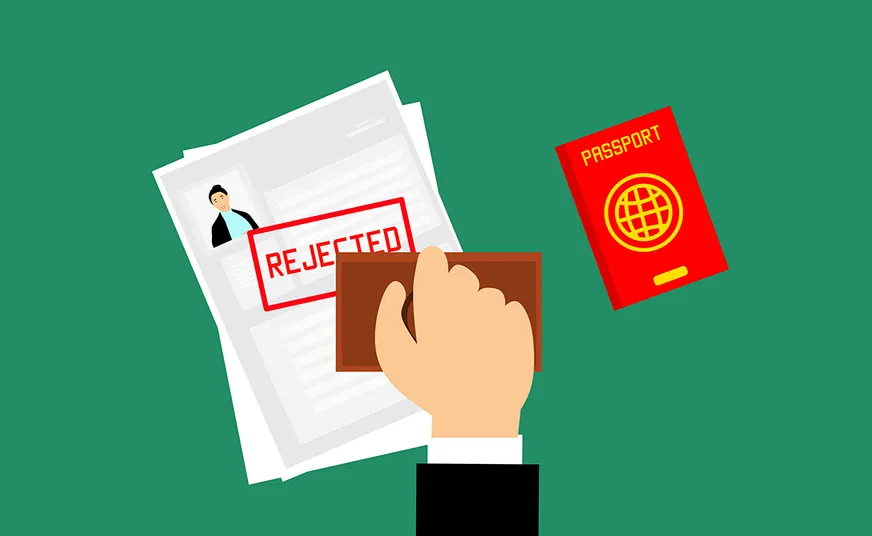Sometimes, individuals involved in international trade desire to come to the U.S. to further their trade-related aims. For many traders, entering the U.S. market is not only a business opportunity but also a long-term strategy to expand global operations. Immigration matters related to getting admittance to the U.S. for this purpose can carry significant implications. These include business consequences, such as access to new customers and supply chains, as well as financial consequences, including taxes, contracts, and market stability. Choosing the right immigration route is, therefore, a critical step for international traders.
What Is the E-1 Visa Program?
One immigration route that traders may pursue for permission to enter the U.S. for trade-related purposes is the E-1 visa program.
The E-1 visa was specifically designed to facilitate trade between the United States and treaty nations. It provides traders with legal status to enter and work in the U.S. while conducting their international business. Only nationals of select countries are eligible. Specifically, a person must be from a country that has a commerce and navigation treaty with the United States. Because of this requirement, E-1 visa recipients are often referred to as treaty traders.
This visa category is particularly important for entrepreneurs, established companies, and families that rely on continuous international trade as a foundation for their businesses and livelihoods.
Eligibility Goes Beyond Nationality
Simply being from a treaty country and intending to engage in international trade with the United States is not enough. The E-1 visa requires applicants to go further and demonstrate that they meet the trade-specific thresholds. Immigration authorities examine not only the applicant’s nationality but also the business structure, the consistency of trade, and the relationship between the U.S. and the treaty country.
Core Requirements of the E-1 Visa
Substantial Trade Requirement
The trade carried out by the applicant must meet the “substantial trade” standard. This requirement does not set a specific monetary threshold, but instead considers the overall flow, frequency, and continuity of trade. For example, a company importing dozens of shipments of manufactured goods valued at several hundred thousand dollars annually is more likely to qualify than a company relying on a single high-value shipment. The government assesses whether the trade is stable and ongoing, rather than speculative or temporary.
Principal Trade Requirement
Applicants must also meet the “principal trade” requirement. This means that more than 50% of the trader’s international trade must be conducted between the treaty country and the United States. For instance, a German exporter whose trade is split 70% with the U.S. and 30% with the rest of Europe would likely satisfy this requirement. By contrast, if only 30% of trade involves the U.S., eligibility may be in doubt. This rule ensures that the E-1 visa is used primarily to promote commerce directly between the treaty country and the U.S.
Complexities in Eligibility
Eligibility for the E-1 visa often turns on careful documentation and the ability to demonstrate business operations in detail. Immigration authorities may request shipping records, contracts, invoices, tax documents, and corporate filings as part of their investigation. Even businesses with substantial trade may face difficulty if they cannot prove continuity or provide accurate evidence. This is why eligibility is rarely straightforward, and each application is evaluated on a case-by-case basis.
Attorney Responsibilities in the E-1 Visa Process
Just as employers in California have legal responsibilities under workplace safety laws, attorneys play a central role in the E-1 process. A skilled immigration attorney helps traders evaluate whether the visa program is the right path and prepares a strong application.
Attorneys assist by:
- Reviewing eligibility based on nationality and trade activity.
- Gathering and organizing contracts, invoices, and other records to demonstrate substantial and principal trade.
- Preparing the narrative explanation that ties all evidence together in a way that meets immigration standards.
- Guiding clients through the consular interview, ensuring they can confidently explain their business operations.
Legal representation is not required, but without it, many traders risk submitting incomplete documentation or failing to meet the burden of proof, which can result in costly denials.
The Consequences of Not Meeting E-1 Requirements
Failing to qualify for the E-1 visa can have significant consequences. Traders may be denied entry into the U.S., which can delay business contracts, halt expansion plans, and create reputational harm with U.S. partners. Financial losses may follow, particularly if goods or services were already scheduled to be delivered. Some applicants may also face long waits or the expense of reapplying if their documentation was incomplete.
The E-1 Visa Application Journey
Applying for an E-1 visa involves multiple steps that must be followed carefully:
- Confirm Eligibility – verify treaty country status and trade activity.
- Assess Trade Records – determine whether trade is continuous and substantial.
- Prepare Documentation – assemble shipping invoices, contracts, tax filings, and banking evidence.
- Submit the Application – either abroad at a U.S. consulate or through a change of status request within the U.S.
- Consular Interview – answer questions about trade, provide additional evidence, and demonstrate compliance with visa rules.
- Final Decision – receive the visa or be asked to provide further documentation.
For many applicants, this journey is time-intensive and requires strategic preparation. Missing documents or unclear records can lead to significant delays.
Beyond the E-1 Visa: Alternative Options
When the E-1 visa is not an option, other immigration routes may provide solutions.
- The E-2 Visa focuses on investment in a U.S. business rather than trade.
- The L-1 Visa allows intracompany transferees to enter the U.S. to expand operations.
- Employment-based green cards may also be available for individuals seeking permanent residence.
Understanding which option best fits requires analyzing the applicant’s long-term goals and business activities.
How to Strengthen an E-1 Application
Traders seeking the E-1 visa can take proactive steps to improve their chances of approval:
- Keep detailed records of all trade transactions.
- Ensure that the majority of international trade is directed toward the U.S. market.
- Demonstrate that the business is real, ongoing, and profitable.
- Consult with legal professionals early to anticipate documentation gaps and address them before filing.
By strengthening their case in advance, traders can present a more persuasive application that meets U.S. immigration expectations.
Frequently Asked Questions (FAQs)
Who qualifies for the E-1 visa?
Nationals of countries that have a commerce and navigation treaty with the U.S. who engage in substantial and principal trade.
What is considered substantial trade?
Trade that is frequent, continuous, and significant in overall volume, even if no fixed dollar threshold is required.
Does more than half of the trade have to involve the U.S.?
Yes. More than 50% of the applicant’s international trade must be with the applicant’s treaty country and the United States.
Is being from a treaty country enough?
No. Applicants must also demonstrate that they meet both the substantial and principal trade requirements.
How can attorneys assist in the process?
Attorneys review eligibility, prepare documentation, and ensure that evidence is presented in a manner that enhances the likelihood of approval.
Get Legal Help Today
If you are engaged in international trade and considering the E-1 visa, it is advisable not to navigate the process alone. The rules are complex, the evidence burden is high, and success often depends on professional guidance.
At Hussain & Gutierrez, our legal team is dedicated to assisting treaty traders in securing the E-1 visa through strong applications supported by detailed legal expertise. We ensure that every client receives the advice and advocacy they need to pursue opportunities in the United States.



